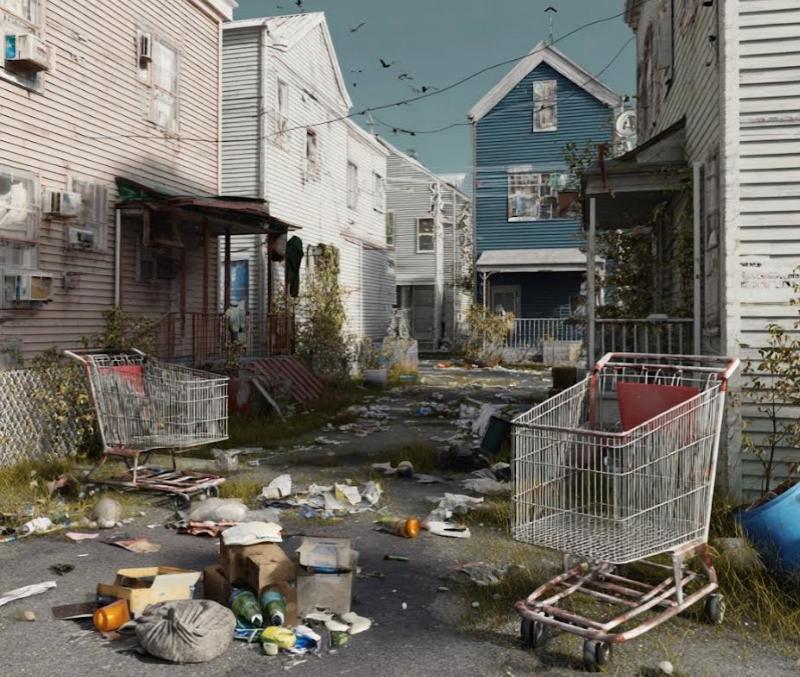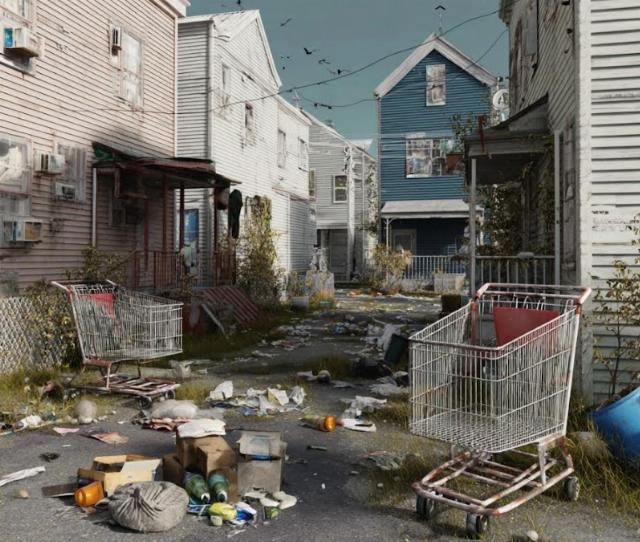


The black community’s disengagement from ordinary acts of civic responsibility is harming America as a whole, but mostly, it’s harming blacks. To save their communities, blacks need to reengage with what was once normative polite conduct across American society. To appreciate this point, consider the tales told by abandoned shopping carts and litter.
Shopping carts were invented in Oklahoma in 1937 and changed the face of retailing. No longer were customers limited to what they could carry around the store. Now, they could leisurely stroll through the store without having to worry about how much they could fit in their cloth bag or how tired their arms might grow. Today, we’re largely indifferent about carts because the idea of them is so ingrained in our shopping experience that we can’t imagine a time when they didn’t exist.
As functional as carts are for the shopping experience, however, there’s a different function that they serve that is equally important, but in a completely different context.
Shopping carts serve as a great proxy for observing conscientiousness. What one does with a shopping cart tells a lot about a person. Most stores that have shopping carts have a bin for you to return them, so you don’t have to go all the way back to the actual store. But here’s the thing about shopping carts. You get no compensation for returning them. Nor do you (normally) suffer any consequences for not returning them. The only people impacted by your returning the cart to the bin are others. Returning it is just the right thing to do.

Image created by Vince Coyner
As such, most people return their carts to the bins as one would expect a normal person to do. But others simply leave them in the next spot or put them on the curb next to their car. There are consequences of such behavior, of course, but rarely for the person who left the cart. The cart can take up a space, so someone else must get out of the car and move it to park. It can start rolling in the parking lot and hit a car or a person. Employees must go around and collect those stray carts and return them to the bin or the store.
Another such measure is littering. Littering is another of those little things where the cost of doing the right thing is usually minor, while the consequences for the individual who fails to act are generally nonexistent. Meanwhile, litter has negative consequences for the community, ranging from the cost of pickup to aesthetic issues to clogging drains and polluting waters.
Whether it’s leaving a shopping cart in the middle of a parking lot or throwing trash on the street, both are among the most basic measures of citizenship. Doing what’s right typically takes but a few seconds of the person’s time, and they do so even knowing that it’s rare for anyone to suffer immediate harm if they don’t act.
It’s instructive when one notices that people aren’t taking those few seconds to do the right thing. It’s like the old saying, “If you want to know someone’s character, watch how they treat people who can do nothing for them.” We’ve all seen people who are rude to waiters or store clerks, and usually they’re self-centered jerks. Same thing with shopping carts and litter.
Across the country, every day, you see communities covered in litter and innumerable shopping carts that were not only not returned to the bin but were outright stolen. Here’s the thing: Shopping carts and litter are just the most benign signs of conscientiousness and citizenship. The lack of such betrays itself in far more malignant ways as well, and we’re seeing that across the country, particularly in videos: Spirit Airlines airport counters. Six Flags parks. Carnival Cruise Line ships. Seemingly every restaurant chain in America. Malls. Schools. Subways. And of course, street takeovers. This bad behavior seems to be everywhere, and one segment of society is perpetuating most of it: Blacks.
It appears to be the case that for a very large segment of black America, the ideas of conscientiousness and good citizenship are simply nonexistent.
This might sound like a peripheral issue, but in reality, it’s anything but. It’s what’s called the Tragedy of the Commons, individuals acting in selfish ways that harm society as a whole.
The perfect example of this is when individuals or packs of looters steal from stores. When it becomes expensive enough, either through having to implement security measures, replace damaged property, or buy new inventory, eventually the stores close. The result is that citizens of the community have fewer shopping options available to them. Then, when storefronts remain vacant, they become magnets for graffiti and vandalism. More vacant properties scare off potential customers, attract the homeless, drug addicts, squatters, and, eventually, more crime. The final outcome is usually that property values and, therefore, tax revenues decline, ending in community decay.
This tragedy, which used to be largely confined to black or urban neighborhoods, is today spreading into the suburbs and the rest of the country. The consequence of this problem, and the fact that most of it is being done by blacks, is shredding civic order and, frankly, increasing the division of races. The meme “Black Fatigue” has taken hold for a reason and seems to be almost ubiquitous. Black sportscaster and commentator Jason Whitlock says of it: “It is the antithesis, it is the yin to the yang of Black Lives Matter. It’s white people boldly expressing their fatigue with black people… This was inevitable.” He’s right.
As this anti-social behavior expands, it hits companies that are perceived to have significant black clientele. Carnival Cruise Lines has come under fire because of recent rule changes that are said to target black customers. Spirit Airways has seen its stock collapse 85% in 5 years, and Six Flags recently implemented chaperone requirements due to problems with “teens,” resulting in a decline in attendance and a $100 million loss. These companies are trying to survive, and their black customers are making it difficult.
But this uncivilized behavior shows signs closer to home as well. It’s results in schools in black neighborhoods where kids can neither read nor write, which in turn results in half of black high school graduates being functionally illiterate, not to mention the third-world level of murder and violence among blacks, regardless of their economic status.
The bottom line is that a civilized society requires that citizens respect a certain level of behavior and decorum, and we’re seeing too many black Americans ignoring that basic responsibility. When people on the edge of the Overton Window of the culture wars (that is, people most normal Americans would find deeply offensive) start saying things that significant numbers of people agree with, that suggests a tipping point might be near.
If black Americans want to enjoy the full spectrum of the gifts of freedom America has to offer, they must, individually and en masse, recognize that violence, anti-social behavior, and trashing communities, both literally and figuratively, will have to stop. In the corollary to the Tragedy of the Commons, by exhibiting better behavior, blacks will not only benefit themselves, but they will also help improve the wider community.
Follow Vince on X at @ImperfectUSA.
